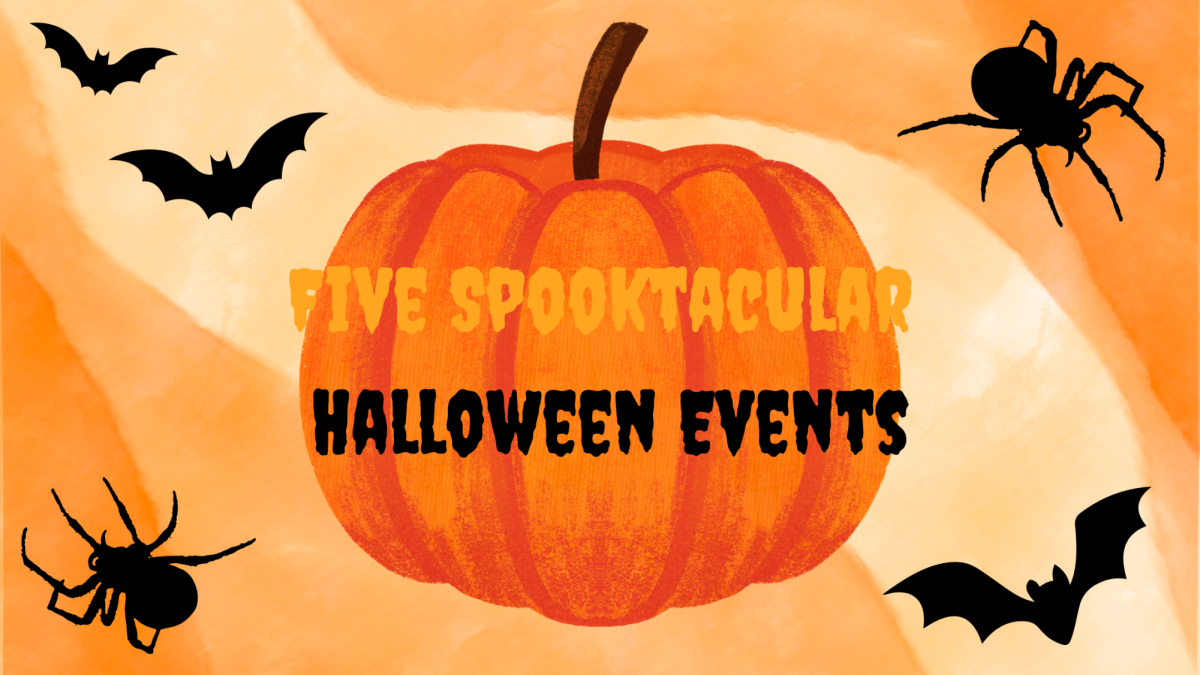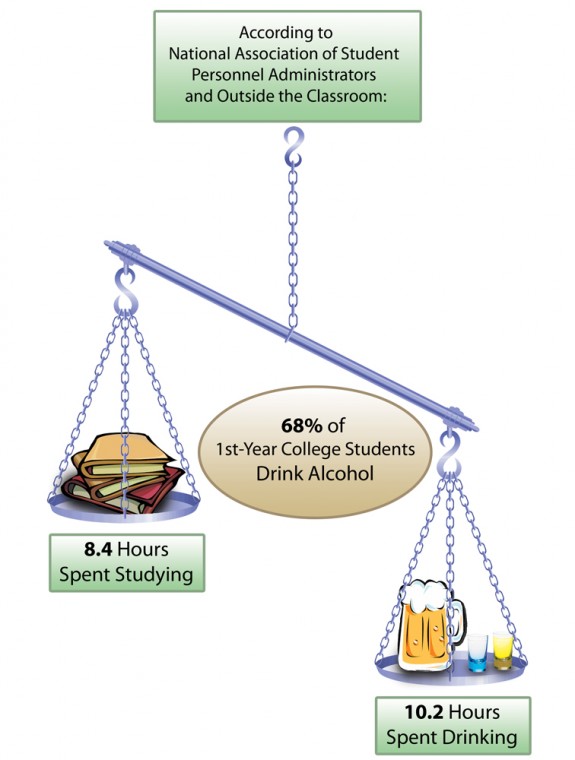Booze vs. studying
March 26, 2009
Students spend more time drinking than studying, according to a new study on freshman college students from Outside the Classroom and the National Association of Student Personnel Administrators.
Of the students who took part in the March 2009 study, 68 percent admitted to drinking alcohol. On average, 49 percent of those students spent 10.2 hours per week drinking and 8.4 hours per week studying.
Outside the Classroom address epidemic-level public health issues affecting education, corporate, and government institutions. Brandon Busteed, Outside the Classroom’s chief executive officer, said these statistics are a big wake-up call for colleges.
“Parents are working hard to pay tuition bills, yet many of their children are out drinking instead of investing time in building their future,” Busteed said in a press release.
Sacramento State Health Educator Cyndra Krogen was extremely concerned when she first read the study, but said Sac State students are not as bad as the study indicates.
“I would never say alcohol isn’t a problem,” Krogen said. “But compared to the national statistics, our campus consumes less alcohol.”
She referred to a 2006 survey of 2,200 Sac State students, which found that 35 percent of participants consumed five or more drinks per week, compared to the national average of 50 percent.
Senior economics major Mark Johnston said he spends about 10 hours per week drinking, but that is spread out while hanging out with friends.
“I’m at the top of my class, I get A’s and B’s and I still drink,” Johnston said. “It has a lot to do how you prioritize your life. I never prioritize drinking.”
While admitting that he got a little crazy when he was younger and lived in the residence halls, Johnston said he started to drink more responsibly as he became older.
“I’ve been drinking for a few years now. I do it to enjoy, not to get drunk,” Johnston said.
He said sorority and fraternity activities may have pushed up the average.
Junior communication studies major and Gamma Phi Beta member Kristine Gamba said she too was not surprised by the study’s findings, but believes it is a misrepresentation of students, especially members of fraternities and sororities.
She said her sorority has programs that require members to fulfill a quota of study hours. If members do not complete those hours, they are not allowed to participate in sorority events.
One of Gamba’s fellow sorority members, junior biology major Veronica Butenko, conceded that she partied every night when she first became a member of Gamma Phi Beta.
“My first semester I wanted to do everything,” Butenko said. “You learn quickly that you can’t do that.”
Senior public relations major and Kappa Sigma member Chris Berry agreed with Butenko, but looked at the issue in a different way.
“You can drink every night as a freshman, but once you get older, you start getting hungover,” Berry said.
Other statistics on college drinking paint a darker picture. According to Mothers Against Drunk Driving, about 1,700 college students are killed each year due to alcohol-related injuries.
MADD Program Specialist Becky Wood agrees that the study is not surprising. She said she worries about the livelihood of these young drinkers.
“When someone sees a loved one in a casket, their world will change in a New York minute,” Wood said.
Statistics from MADD also state that in one year, about 100,000 college students will become the victim of a sex crime while drunk and 2.1 million young adults will drive drunk.
MADD doesn’t just provide statistics on young drinkers; part of MADD’s mission is to promote alcohol awareness to college students.
Wood is part of MADD’s college program, UMADD, which designed to help students create student-run organizations about drinking issues.
She is currently working with a small group of students to create UMADD organizations in colleges around Sacramento, including Sac State.
“I’d love to have the whole campus on board, but party kids probably won’t want to listen,” Wood said. “We just want to inform them of the dangerous activity they are participating in.”
Sac State already has programs, like Safe Rides, that are directed toward students who drink.
Michael Mette can be reached at [email protected].




























































































































